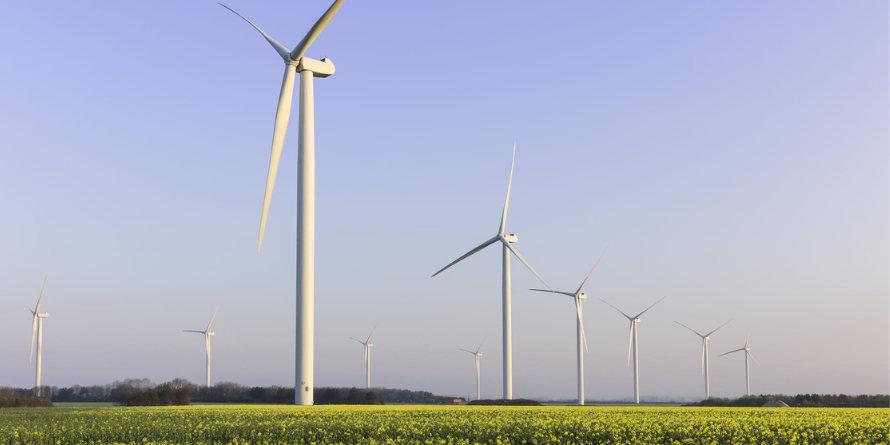Posted on: 11/11/2024
In this blog, Hayley Thompson, VP Global Marketing and Executive Sustainability Sponsor, discusses the lead-up to COP29, including contention around the host nation; the resolutions we need to see come out of the conference; and the predicted impact of any expected announcements on businesses and their energy transition journey.
It's COP29 week one... what can we expect from the next two weeks and beyond?
Having been on the ground in Baku ahead of COP29, I’ve seen firsthand how the city celebrates its history and development – much of which is related to oil and gas (as we would expect). Whether this is through Baku’s Ateshgah Fire Temple, an ancient religious site built around a natural gas vent that ignites flames, or the world’s first oil well that was commissioned in 1847, located adjacent to active oil wells pumping today.
There is no denying the controversy around the location for this year’s climate conference. Similarly with the UAE who hosted COP28, Azerbaijan has been accused of holding contentious oil and gas related deals alongside and at odds with the conference. While it has been the location for other international events including the F1 as a street circuit, and the 2019 Champions League Final (potentially 2027 as well), the country playing host to COP29 represents something different altogether.
Dubbed as the “finance COP”, we can expect a new sustainability finance target to come out of the conference – advancing 2009’s $100 billion annual target – along with the potential to stipulate public versus private targets.
We also need to see clarity around how the countries and communities that need climate finance the most get it. The Green Climate Fund (GCF) Board has allocated more than US$1 billion of investment into projects that support climate change mitigation actions in developing countries. So we will eagerly wait to see the guidance this year’s COP offers to the United Nations Framework Convention on Climate Change (UNFCCC) about the GCF's policies, eligibility criteria and programme priorities.
In terms of the UK’s investment in supporting developing countries with their climate goals, the UK currently contributes to a number of funds including the Global Risk Financing Facility (GRiF) programme. It also spent £12.79 billion in official development assistance in 2022, including mitigating the impact of climate change on developing countries. But it is not the UK’s commitments that the world will be focusing on over the next couple of weeks.
Given the recent presidential news from across the pond, all eyes will be on how the US navigates COP29. While President Biden’s administration will have a presence at the conference, it will be President-elect Trump – who in his previous term announced the US would pull out of The Paris Agreement – determining if any agreements the US makes go ahead following the conference.
While there are a host of announcements and policy agreements we can expect to see during the conference, it’s also worth noting how important it is to see Youth-led Climate Forum Dialogues taking place at COP29. At SmartestEnergy we are focused on empowering a greener generation, and given the major climate-focused shifts we can expect to see over the next few years as we continue to navigate geopolitical changes, it will be powerful to understand what younger generations want to see from current world leaders.
Az Choudhary, Marketing Manager, supported COP27 in Egypt, and he shares his thoughts on how he found the experience:
"There was a remarkable sense of mission, direction and a need to mobilise globally in the race to net zero. There was also a great deal of urgency onsite, with many arriving with a key list of contacts to speak with and a relentless pursuit in having those critical conversations. The sense of direction from all participants as they narrowed in on their prospective networks cut through the hectic environment and truly showcased collective urgency in tackling the climate crisis.
"Being held in Egypt did have its challenges, including access to public travel and tap water onsite. However, these challenges served as a sage reminder to delegates from more developed economies that net zero is a global issue and, due to a prevailing theme of water scarcity, that the infrastructural issues faced at COP27 could very well be at our own doorstep if we don’t act quickly.
"It’s these challenges which made COP27 a unique event – moving away from simply pledges and declarations, COP27 held a mirror to our privileges and put delegates into the shoes of those who most desperately needed the change we are fighting for."
The impact COP29 will have on businesses’ sustainability goals
Businesses will need to look to their global supply chains and beyond their direct spheres of influence to consider how they can support wider climate change initiatives that deliver benefits in countries and communities that need it the most.
With climate change being the focus of materiality assessments the world over, it is now time for industry to step up commitments and action in line with the government. This is where sustainability experts need to help businesses understand the journey they are currently on and where they need to be, supporting with the transition to renewable energy so companies are in line with the UK’s net zero ambitions.
Given transparency is a central theme to this year’s COP, we look forward to monitoring the role the Baku Global Climate Transparency Platform will play in advancing global climate change accountability. Our Traceable Renewable Supply product is one example of how we’re helping clients deliver greater transparency. The product allows businesses to report on a half-hourly basis – recording their Carbon Free Energy (CFE) score and Grid Average score – providing a more transparent way to measure true renewable electricity consumption and better trace its origins, giving greater reassurance to all stakeholders.
We also need to see businesses implement more ambitious, creative solutions brought about by factoring in diverse ideas and solutions, clearer expectations and investment by the private sector. And we need to see companies signalling how climate commitments and pledges can be strengthened ahead of 2025’s nationally determined contributions (NDCs) being published.
Some final thoughts ahead of next week...
My current enrollment on the Cambridge Institute ‘Business Sustainability Management’ course has drawn my attention towards how in the face of global challenges such as climate change, the significance of collaboration at a national and international level is key. COP is an enabler for this collaboration, keeping climate change on the agenda and maintaining global momentum.
Like Azerbaijan, the UAE was criticised in the media for hosting COP28, but the central role it played in the global conference has clearly spurred action and leadership in the country since, with the UAE likely to step up and release new climate commitments before COP29.
Azerbaijan seems similarly keen to step up and champion the parallels it draws with its relationship with the Nobel Peace Prize (the Nobel brothers operated an oil company out of Baku and nearby countries), which was created to award people who have done the most for "fraternity between nations, for the abolition or reduction of standing armies and for the holding and promotion of peace congresses". Azerbaijan will be hoping COP29 delivers the same objective, bringing countries together for a common, greater good.



 United States
United States Australia
Australia






